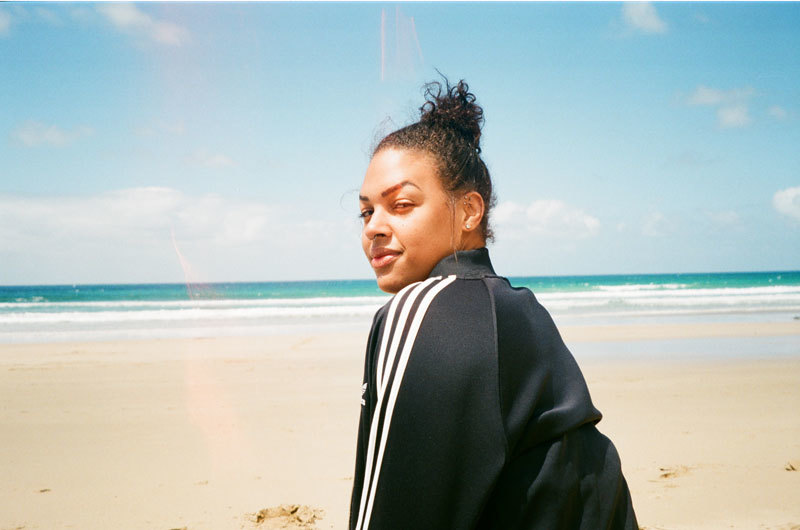When Olympic basketballer Liz Cambage set out for the 2016 Games in Rio de Janeiro, she faced an uphill battle. Despite previously being immortalised as the first woman to slam dunk in the Game’s history, her love of the sport had withered with physical and mental health issues. In its place, she found room to explore other interests: music, fashion and most notably the rights of women and people of colour.
In recent years, the London born, half-Nigerian athlete has come to redefine how we view and discuss female athletes in Australia. Known equally on and off the court, she balances her record breaking career with DJ spots supporting Mary J Blige and her own shoe line. In a climate where female athletes are often treated as second class, underpaid versions of their male counterparts, Liz hasn’t let herself be muted. As a result, she’s drawn an audience for her dedication to fighting for social and cultural change in Australia.
Ahead of taking some well-needed time off, i-D spoke to Liz about the role young Australian activists can play in 2017.
What was the turning point that changed your initial hesitation about speaking your mind publicly?
I was 15 when I found a blog dedicated to ripping into my appearance and basketball skills. It was pivotal; I decided I couldn’t waste time caring what others think of me, unless they know me. I’ve learned that what I stand for is more important than what brands and sponsors want me to be. And yet, I was told I’m too controversial for sponsors. What’s my biggest controversy? That I’ve called out racists? That I went to a music festival when I’d already quit the team? I’ve always been shamed for my interests away from sport. Being pigeonholed as an athlete means you can’t stand for anything else, but not in my books.
You’ve been labelled as ‘bold’ and ‘outspoken’ by media outlets. Why are people so riled up by a confident woman who isn’t afraid of asserting herself?
People get really aggressive about it. The DMs, comments and tweets I get, I just think, how bored are you? Julia Gillard is a prime example, and her famous misogyny speech stayed with me because it’s so true: I will not be lectured by a man on how to live my life.
Why is it so important to champion marginalised identities today?
We keep marketing ourselves as this multicultural country, but we can’t even name five POC television presenters off by heart. We’re full of hypocrisy. Growing up, I didn’t understand why I wasn’t skinny, small and beautiful like the girls I saw on whitewashed Australian television. I wish I had a black role model growing up that was proud of herself and her body, which is the role model I want to be – not just for sport, but as someone who empowers girls and boys to do what they want and have pride in their passions.
What upsets you the most about Australian culture?
That we don’t teach our history in schools. You get shown Rabbit Proof Fence, and that’s it. You don’t get shown Indigenous people in chains, people once classified as flora, or that it was legal to kill them. So we don’t learn the true hurt that Indigenous Australia feels. And now we have presenters and politicians talking about banning religions. It breaks my heart because viewers become brainwashed. Even reality television is problematic — take The Bachelor; you get one token contestant of colour and the rest are white. It’s ridiculous! Sometimes I’m not sure if we’re going backwards or forwards anymore. We’re so lucky to live in such a beautiful country, but we’re treating minorities like shit. We’re not lifting people up.
What can we all do as individuals to change the system that serves to benefit mostly cis white, straight and able-bodied individuals?
Start with the smaller things. Have a conversation. Unlearn little behaviours. Change the way your friends speak about taxi drivers. Change the way you treat your cleaner, or whoever it may be. I’ve always treated others equally and it disgusts me to see those people in service jobs treated differently. If you are privileged like me, use it to help others. Volunteer. Protest. Unless you’re living and breathing it, and really caring, it isn’t enough.
What makes you proud to be part of your generation in 2017?
I’m really inspired by girls like Amandla Stenberg, who are just so in tune and fighting for change. It’s really powerful. With our youth, I think we’re holding each other accountable more. There are a lot of young activists out there and it’s really empowering to see that.
Credits
Text Stephanie Wade
Photography Levi Cross
